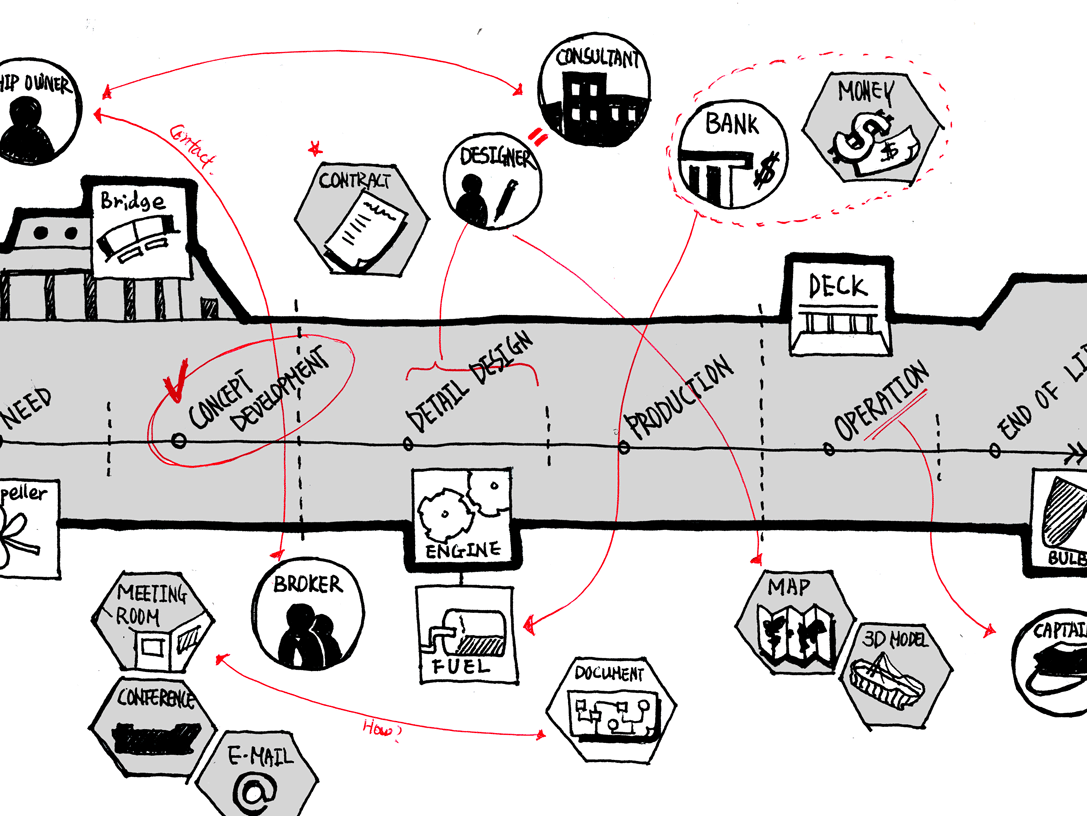Etienne Gernez Designing for human collaboration in ship design processes
Human collaboration is a challenge when designing ships. The many actors involved in the design and decision-making processes have different level and direction of expertise and the frameworks for understanding separate parts of ship design can be hard to share across disciplinary gaps. This is a serious challenge since miscommunications and un-inclusive design processes can lead to suboptimal or even unsafe ship design solutions. This project focuses on the use of field studies as a mean to transfer knowledge from step to another and one actor to another in the ship design process.
The project is then asking: (i) how to design field studies in order to collect isolated actor knowledge ? (ii) how to carry out such field studies ? (iii) how to implement the insight and findings from the field studies back into the ship design process?
The methods used to explore the design, execution and implemention of the field studies are borrowing from the engineering and design tradition, respectively from Human Factors and from Human Centered Design. Human Factors methods are used to describe specific operations and tasks carried out during the ship design process. Human Centered Design methods are used to describe and navigate the full complexity of the whole ship design process, as well as facilitating the participation and engagement of the different actors involved in the process.
This project aims at highlighting the need for the maritime industry to develop competence in facilitating human collaboration in order to strengthen its ability to innovate for the safety and efficiency of maritime operations. It also aims at enabling designers to bring their human centered competences to a traditionnally technology centered maritime industry.
Institute of Design / Kjetil Nordby (Supervisor)
PhD started in 2014

